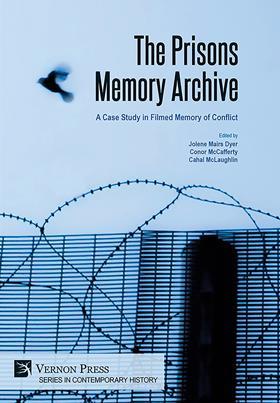Living memory – an oral history of jail amid the Troubles
The Prisons Memory Archive: A Case Study in Filmed Memory of Conflict
Jolene Mairs Dyer, Conor McCafferty, Cahal McLaughlin (editors)
£65, Vernon Press
★★★✩✩
The divide between communities is still very relevant many years after the end of the period known as the Troubles. There are many ways to identify a person’s background in Northern Ireland: whether they are from the Unionist/Protestant or Catholic/Republican community. These include what first names the person was given by their parents, the spelling of Mac or Mc, the name of the school attended, the type of newspaper they read, where they live and their pronunciation of words. No one can escape their past. Even referring to ‘Northern Ireland’ or ‘the North of Ireland’ is making a choice. All this remains despite the years that have passed since the Good Friday Agreement; and even though fewer people identify as religious.

This book is about the Prisons Memory Archive, an oral history project from 2006/07. The participants included prison staff, prisoners, relatives, teachers, chaplains, lawyers, doctors, probation officers and maintenance workers. There were 161 filmed recordings with individuals who had a connection with prisons such as Armagh Gaol, the Maze and Long Kesh during the conflict. The full PMA collection is housed at the Public Record Office of Northern Ireland. The collected material includes selected extracts from interviews and recordings, as well as short and longer films. Access to the collection is available online.
The prisons will be familiar to anyone of a certain age who saw television reports on the Troubles. The book is mainly about those directly involved as participants in the conflict, but also the staff, including reference to Billy’s museum, a private collection assembled by a former prison officer. Northern Ireland clings to its past in a way people in the rest of the UK do not always understand or appreciate.
This is an interesting account of a project to record history that is real and relevant now. It is somewhat academic and the participants’ reflections on the past are the most interesting. People change their views and move on. Preserving personal accounts is important and this is principally about people, not politics.
David Pickup is a partner at Pickup & Scott Solicitors, Aylesbury































No comments yet